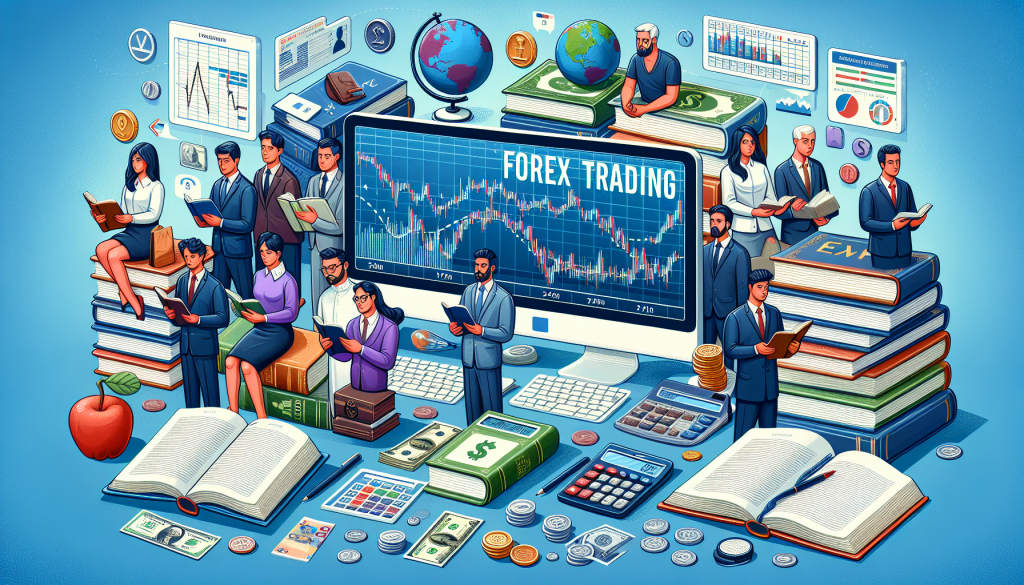Learn Forex Trading

The world of foreign exchange, or Forex trading, with its fast-paced action and potentially significant returns, often draws the attention of many aspiring traders. But, before diving into this dynamic market, it’s vital to learn the ropes. If you’re wondering how to “learn Forex trading”, this guide is for you.
Understanding Forex Trading
Forex trading involves buying one currency while simultaneously selling another. It is the largest and most liquid financial market globally, with trillions of dollars traded daily. The market operates 24 hours a day, five days a week, offering flexibility to traders worldwide.
Why Learn Forex Trading?
Forex trading offers numerous benefits:
- Accessibility: You can start trading forex with a relatively small amount of capital.
- Flexibility: As the forex market operates round the clock, you can trade at any time that suits you.
- Liquidity: Due to its large volume, the forex market offers high liquidity, meaning you can buy and sell currencies with minimal price distortion.
But, without a proper understanding of the market, it can be risky. Hence, it’s crucial to learn Forex trading before you begin.
Starting to Learn Forex Trading
Here are some steps to start your learning journey:
- Education: Start with a basic understanding of what forex trading is, how the market operates, and what affects currency movements. There are numerous online resources, including articles, tutorials, webinars, and eBooks.
- Trading Courses: Consider enrolling in a forex trading course. These courses offer a structured learning path and cover topics ranging from basic to advanced trading strategies.
- Practice: Open a demo trading account. This will allow you to apply what you’ve learned without risking real money.
Picking the Right Forex Trading Course
When looking to learn Forex trading, choosing the right course is vital. Your chosen course should:
- Match Your Skill Level: The course should cater to your current knowledge level, whether you’re a beginner, intermediate, or advanced trader.
- Cover Essential Topics: It should cover a wide range of topics, including market analysis, trading psychology, risk management, and trading strategies.
- Offer Practical Learning: Look for courses that offer practical trading experience, such as live trading sessions or the opportunity to practice on a demo account.
Learning Forex Trading: Online vs. Offline
While traditional classroom-based courses are beneficial, online courses offer flexibility and convenience. They often include video tutorials, live webinars, forums for discussion, and the ability to learn at your own pace. So, if you’re someone with a busy schedule, online learning might be the ideal choice for you.
Conclusion
In conclusion, to “learn Forex trading” is to equip yourself with the knowledge and skills needed to navigate this dynamic market successfully. It’s a journey that requires time, patience, and continuous learning. With the right education and practice, you can potentially unlock significant opportunities in the world of Forex trading. So, start your journey today, and remember – every expert was once a beginner.

